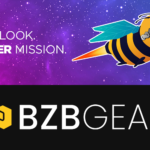Artificial intelligence (AI) has achieved that elusive status in the integration industry: It’s incredibly exciting, but people are sick of hearing about it. That’s a hard feat to accomplish!
Past the midpoint of 2024, it feels like AI is a required topic at events, webinars, the water cooler…you name it. NSCA spends a good deal of time tracking and talking about AI within our own conferences and committees.
The conversations are tricky, and they’re constantly changing. For instance, the conversation on AI that we had at our 2023 Pivot to Profit (P2P) event was quite different from the conversations that we had just a few months later at the 2024 Business & Leadership Conference (BLC).
AI is exciting, but that’s not the whole story.
Related: [Webinar] How Integration Companies Can Improve Efficiencies Using AI
Excitement Amid AI Questions
When it comes to AI content, we try to focus on how AI will impact your business. That’s why, at P2P 2023, we had attorney Sid Bose of Ice Miller lead a panel discussion about legal and ethical challenges related to AI.
Sure, it’s exciting that AI might prove helpful in tasks like engineering, drafting and code writing. But Bose challenged integrators with this: It’s important to consider what your customer hired you to do and the impact of using a non-human-generated solution.
Forward-thinking integrators will no doubt do the following:
- Dive into AI to determine how it will logically impact their companies.
- Focus on confidentiality implications.
- Explore intellectual-property-related issues.
- Investigate how AI will change system design and proposal writing.
There are still so many unanswered questions:
- How will AI impact job recruiting? Using AI can help you narrow down a pool of candidates quickly, but it risks inadvertently discriminating against certain applicants.
- How will AI be used in the sales process? AI could generate scripts or prompts during sales calls or help generate proposals and quotes.
- Does AI lead to cookie-cutter systems? Customers might or might not be hiring you for a cookie-cutter system. If you are generating cookie-cutter systems, does that lead to staff reconsideration?
- Can AI be used to write code for control systems? Who owns the code that the AI tool generates?
Uncomfortable Conversations
The consensus within the NSCA Community seems to be this: Integrators shouldn’t shy away from AI. Rather, they should embrace the change. But they shouldn’t embrace it blindly.
NSCA sees value in making integrators feel uncomfortable when it comes to AI. Excited, sure…but also uncomfortable.
One of the general session speakers at 2024 BLC was Tanmay Bakshi, a child prodigy and AI developer for IBM’s Watson program. At 20 years old, he became the youngest keynote speaker in BLC history.
Bakshi challenged integration company leaders in the audience to consider what they don’t know and don’t understand about AI. It made a lot of people uncomfortable — but maybe that’s a good thing.
Perhaps integrators should be a little worried about what AI means for the systems and solutions they provide. For instance, our industry collects data through video analytics. What are we going to do with it? What does it mean? What is your role and responsibility with it? These are questions that require answers.
Is AI going to make everyone more productive and more efficient? Is it going to replace our jobs? No one knows for sure. But you’d better darn well understand how to leverage it and grasp what you can do with it.
Join Commercial Integrator and NSCA for an informative, one-hour webinar titled “How Integration Companies Can Improve Efficiencies Using AI.“ This session promises to be information-packed for integration businesses looking to leverage AI for greater efficiencies, accurate fact-checking and enhanced monitoring of their deployments. Register today!
Tom LeBlanc is executive director at NSCA. To learn about becoming an NSCA member, visit NSCA.org.






































